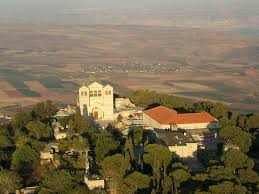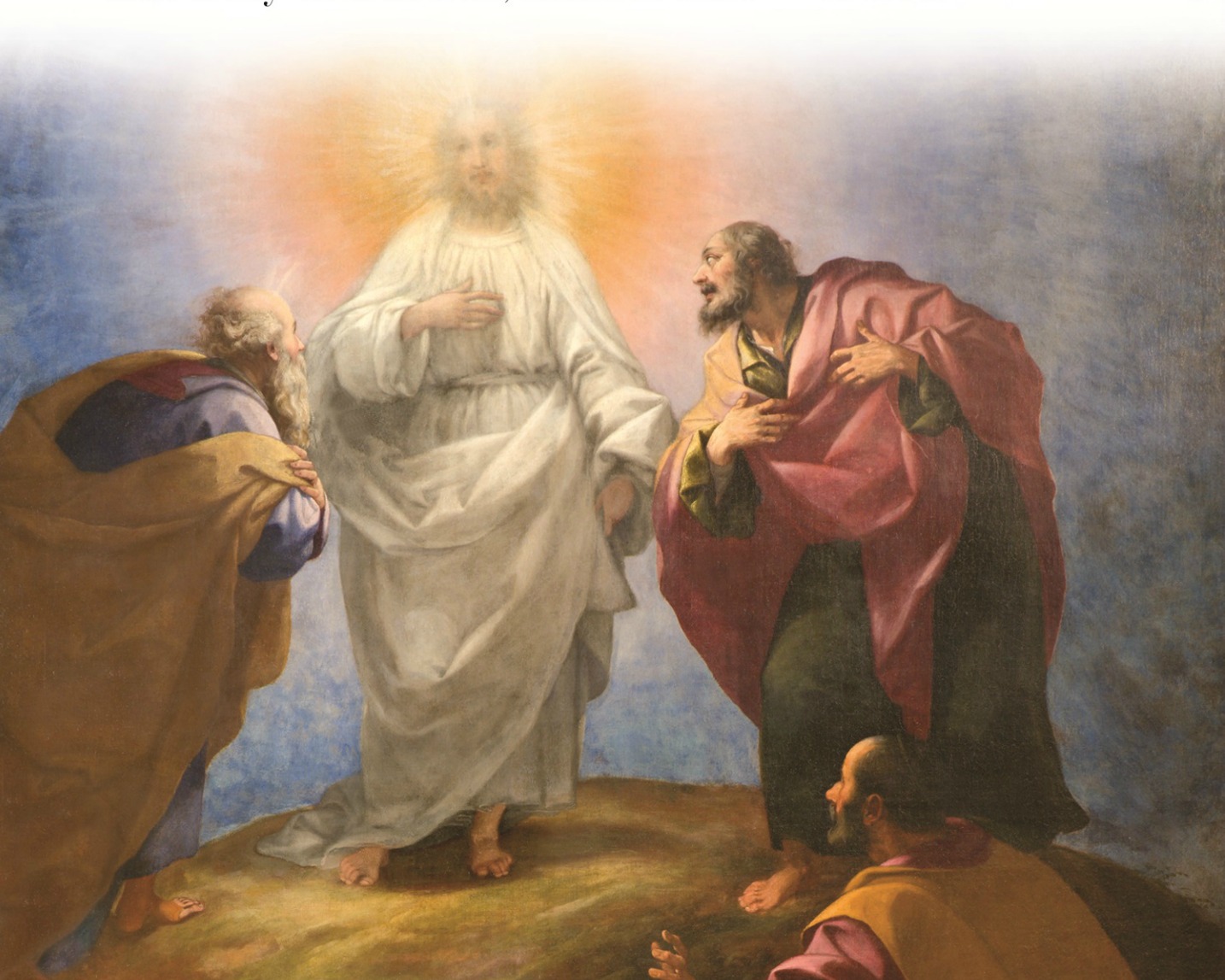Forgive, and you'll find love!
Lent 2020 – Day 16
Readings: Mic 7, 14-15, 18-20; Ps 102, 1-4, 9-12; Lk 15, 1-3, 11-32
There are those who hold the Lord in awe and others who disregard Him; there are those who loathe His name and, happily, many who love and adore Him. Negative attitudes stem from ignorance and/or malice, for the simple truth is that the Lord is at once just and merciful.
God forgives our guilt, heals our ills, and redeems our life from the grave. Mind you, these words make sense not in times of the corona virus alone; the Lord crowns us with compassion and love at all times.... We can’t thank Him enough!
Sometimes children think of parents as oppressive, but who can fail to see the reality of parental love in the parable of the Prodigal Son? Both son and father were "prodigal" – the former wasteful, the latter extravagant in love. And the father’s cry, “This your brother was dead and is alive,” only goes to show his concern for his son’s physical and spiritual health.
Let’s rid ourselves of misconceived notions, repent and forgive, and we shall find authentic love. Now is the acceptable time, now is the day of salvation (2 Cor. 6: 2).
#forgive #repent #love #coronavirus #prodigal #negativeattitudes #compassion
Steer clear of toxic emotions
Lent 2020 – Day 15
Readings: Gen 37, 3-4, 12-13a. 17b-28; Ps 104, 16-21; Mt 21, 33-43, 45-46
Bitterness, envy, jealousy, anger and hatred are toxic: even more so when they envelop the family, where only charity should reign. Alas, the betrayal of Joseph by his siblings is rampant today, for petty honours or material gains.
Joseph prefigures Jesus, who was killed by the very people who He had come to save. Many were aware of His divinity, nonetheless conspired against Him; others stood by and watched, and a few piously shed tears. In the parable of the vineyard, Our Lord hints at the fate that awaits Him.
Today, there are coteries with no qualms about denying God and currying favour with the world. They share space with cliques that cause untold suffering to whoever observes the Lord’s commandments. When they make perverse suggestions or give immoral advice to the unsuspecting they are guilty of spiritual murder. All of which amounts to stabbing the Lord a thousand times every day.
Let’s get out of such circles and decidedly be with and for the Lord our God; it’s a choice we will never regret.
Trust in the Lord with all your heart
Lent 2020 – Day 14
Readings: Jer 17, 5-10; Ps 1, 1-2, 3, 4, 6; Lk 16, 19-31
Jeremiah fearlessly denounced even kings and priests; seeing through the fallen nature of man, he declared that nothing short of a conversion could save him. “Blessed is the man who trusts in the Lord,” he said.
The Gospel draws our attention to a rich man who trusted in himself and in the good things of life; he failed to turn to the Lord with a grateful heart and to his own neighbour with concern. When he died, he was tormented in hell while the poor man was in God’s bosom.
Let’s be dutiful people, praying at all times. Let’s be kind and generous, trusting in the Lord our God: we owe Him every moment of our being. And let our conversion begin today; tomorrow may be too late.
It's not lonely at the top, we have the Lord by our side
Lent 2020 – Day 13
Readings: Jer 18, 18-20; Ps 30, 5-6, 14, 15-16; Jn 6, 63; Mt 20, 17-28
'It’s lonely at the top' is perhaps what Jeremiah felt at first when spurned by his people. Our parents and our God feel the same when we recklessly reject their plans and even rebel if things don’t turn out to our liking. Although we're free to propose, we must let God dispose: this technique is not only a stress-buster but also a herald of great blessings.
When Calvary was just round the corner, Jesus kept spoke to his disciples about wielding responsibility with care and concern for the people. “Whoever would be great among you must be your servant… even as the Son of man came not to be served but to serve,” said He.
Don’t leaders get involved in petty squabbles and at times people envy their power? Whether leaders or followers, let’s realise that all have a cross to bear; life shouldn’t be only about self but also about helping the other.
God-given tasks do entail responsibility but when we trust in the Lord, saying “Your words, Lord, are spirit and life,” we find ourselves smiling and never feel lonely at the top.
We have to serve God and neighbour
Day 12
Readings: Is 1, 10, 16-20; Ps 48, 8-9, 16-17, 21.23; Mt 23, 1-12
Isaiah recommends that we make a clean breast of our wrongdoings and pray for God’s pardon. Further on the proactive side, we need to take in the Word of God in all humility and practise even simple acts of kindness.
Jesus has a special word for leaders of all times, of the kind that don’t practise what they preach.... They are like the Pharisees and Scribes of yore, self-serving and even exploitative; in their vanity hanker after titles and draw the people to themselves rather than joyfully showing them the way to the heavenly Father.
That’s the context in which Jesus said that God alone is our Master, Teacher or Father…. Yet again, Jesus uses hyperbolic language to drive home a point: that the leaders should be service-oriented, for “whoever exalts himself will be humbled, and whoever humbles himself will be exalted.”
Jesus humbled himself taking the form of a servant and we are called to do likewise: serve God by serving our neighbour.
Repentance is key
Day 11
Readings: Dan 9, 4b-10; Ps 78, 8-9, 11-13; Lk 6, 36-38
Daniel makes a fervent plea for repentance: ours is a God who is steadfast in love and keeps His covenant. We are in the depths of distress; it is only fair to request the Lord to not hold the guilt of our fathers against us. Indeed, if God were to be only just and not merciful, who would survive?
For our part, we must resolve to turn a new leaf and go ahead, like prodigal sons, saying, ‘Father, I have sinned against heaven and before you.’
Jesus, who has taught us to say, ‘Forgive us as we forgive those who trespass against us,’ also reminds us to be merciful and to not judge rashly; to condemn not, if we wish to not be condemned; to give generously, for the measure in which we give we shall receive.... But to get here, repentance is of the essence.
Are we spiritually awake?

Lent 2020 - Day 12
Readings: Gen 12, 1-4; Ps 32, 4-5, 18-19, 20-22; Mt 1-9
Had Abram not responded to Yahweh’s call, there would be no Jewish people. He responded to God’s instruction to leave the country: it was a saga of hardships, a saga that bore fruit.
St Paul similarly exhorts us to undertake life’s pilgrim journey, relying on the power of God and testifying to Him. We are privileged to have been called.
In the Gospel, Jesus receives an endorsement in those glorious words from God the Father, the real import of which becomes clear only after the Resurrection.
What is our response to God’s call? Our everyday situations are seed of great things to come. Once in a while we may be privileged to witness a ‘transfiguration’; even then we may show a lacklustre response. So absorbed are we in our chores that we fail to get the larger picture.
Everything will change for the better the moment we are convinced that Jesus is the Son of the true God. We can be considered spiritually awake if we can we sing, “Our soul is waiting for the Lord”.
God doesn't need us to be picture-perfect
Lent 2020 - Day 11
Readings: Deut 26, 16-19; Ps 118, 1-8; Mt 5, 43-48
“Be perfect as your heavenly Father is perfect” is certainly a most curious and challenging mandate. What ‘perfection’ does Our Lord require of us, and why, when we are naturally flawed and will perhaps remain so?
But then, weren’t man and woman originally ‘perfect’, made in God’s image and likeness… until Original Sin spoiled the show?! Down the line, Moses urged the Jews to keep the law and justify the title of ‘Chosen Race’.
Whereas that relationship sounds ceremonial and self-seeking, Jesus, the new and greater Moses, not only proposes a filial relationship with God, He requires that this be reflected in our association with our fellow beings too. Thus, He perfects the old law, mandating that we love and pray even for those who regard themselves as our enemies….
Not to worry – God doesn’t demand that we be picture-perfect! He looks straight at our hearts moving continually to overcome our natural flaws, desirous of restoring things to their pristine state – in His image and likeness! Perfection is not that curious after all if we live each moment in God’s grace. And the search for perfection is less of a challenge when we are still and know that He is God – for in truth it is God who wins all our battles for us.
Called to be authentic
The readings of the day invite us to reflect on how authentic our righteousness really is. Are we busy helping everybody else while neglecting our very own people struggling at home? Do we find ourselves strutting at a church service when we still have scores to settle with family or neighbours?
God wants us to do a self-appraisal: without this there can be no change for the better. He happily welcomes even the greatest sinner who has had a change of heart. “None of the transgressions which he has committed shall be remembered against him.” But if a good man turns wicked, “none of the righteous deeds which he has done shall be remembered” for much is expected from those to whom much has been given.
That is not asking for too much. Once on the path of righteousness we will experience true freedom. What’s more, we will have entry into the kingdom of Heaven which is the crown of righteousness.
Prayer: mother of a thousand blessings
 Lent 2020 - Day 9
Lent 2020 - Day 9
It’s heartening to note God's love and concern for us all the time. When Queen Esther fled to the Lord, saying, ‘Help me who am alone and have no helper but thee, O Lord’, she received help because she asked with expectant faith. Jesus wants us to ask… seek… knock – so that we may receive… find… and have the door opened to us.
St John Chrysostom says that prayer is ‘the mother of a thousand blessings’. Let’s not ask only for material things; these will be added unto us if first we seek His kingdom. And let’s also pray for others whose needs may be much greater than ours.
Should we fail to receive what we’ve asked for, let’s continue to trust that our Father in Heaven will give what is good for us! We shall feel complete and contented if we realize that ‘Man shall not live by bread alone but by every word that proceeds from the mouth of God.’








